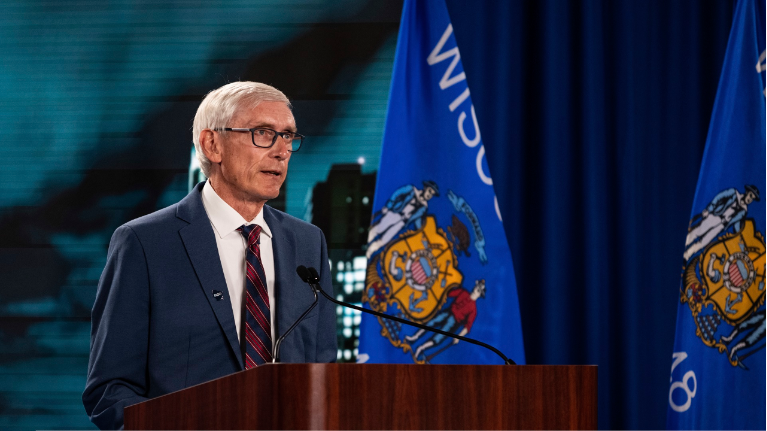MADISON, Wis. (AP) — Debate over the Republican-written $87 billion state budget begins in the Legislature on Tuesday, with the final votes to send the document to Democratic Gov. Tony Evers scheduled for Wednesday.
Evers will then have to decide whether to sign the plan that’s largely been stripped of his biggest priorities, or take the highly unusual route of vetoing the entire plan. Evers has broad power to line-item veto the budget, which he did two years ago after the GOP-authored plan passed with no Democratic votes.
The Assembly was scheduled to take up the budget Tuesday, with the Senate following suit on Wednesday.
The centerpiece of the two-year budget is a GOP-authored plan to cut $3.3 billion in income and property taxes, made possible largely by the state’s unprecedented $4.4 billion surplus. The budget also would end an eight-year freeze on University of Wisconsin System tuition and hold K-12 funding largely flat. All in all, the budget would spend about $4 billion less than Evers proposed.
Republicans erased hundreds of Evers’ policy proposals, including legalizing recreational and medical marijuana, expanding Medicaid, restoring collective bargaining rights for state workers, raising the minimum wage to $10.15 by 2024 and creating a so-called red-flag law that would allow judges to seize guns from people they deem dangerous.
“(The budget) reflects the priorities of all of Wisconsin, not just liberal Democrats in certain parts of the state,” Assembly Speaker Robin Vos said during a news conference ahead of the vote in that chamber. “I want to say thank you to the citizens of the state. We know exactly what you want in this budget.”
Democrats are particularly upset with how Republicans have handled school funding. Evers, a former state schools superintendent, had proposed giving K-12 schools $1.6 billion over the biennium. The GOP killed that proposal and instead gave schools $128 million over the two-year budget, less than 10% of what Evers proposed.
Republicans have defended the move, pointing to the $2.6 billion in federal COVID-19 pandemic relief aid that Wisconsin schools will be receiving. But local school officials say it’s irresponsible to fund their operations with one-time dollars, use of that money is limited and not all schools benefit as much as others.
The GOP moves have raised questions about what Evers will do. Evers, who is up for reelection next year, has not ruled out vetoing the entire budget, a step not taken since 1931. That would likely delay passage of a budget for months.
Assembly Minority Leader Gordon Hintz said during his own news conference ahead of the vote that Republicans care more about denying Evers victories than doing what’s best for the state through the budget.
“Their goal is try to do everything possible to obstruct, oppose and undermine Gov. Evers,” Hintz said. “(They’re) more interested in trying to set the governor up for failure in an election year.”
Evers issued nearly 80 line-item vetoes in 2019. But the Wisconsin Supreme Court sided with conservatives and overturned three of them, including one that shifted funding for school buses to electric vehicle charging stations, one that expanded the range of vapor products that could be taxed and one that changed who qualified for local road improvement funds. That ruling did not limit Evers’ veto power in this budget.
Evers spokeswoman Britt Cudaback didn’t return a message inquiring about the governor’s plans.



